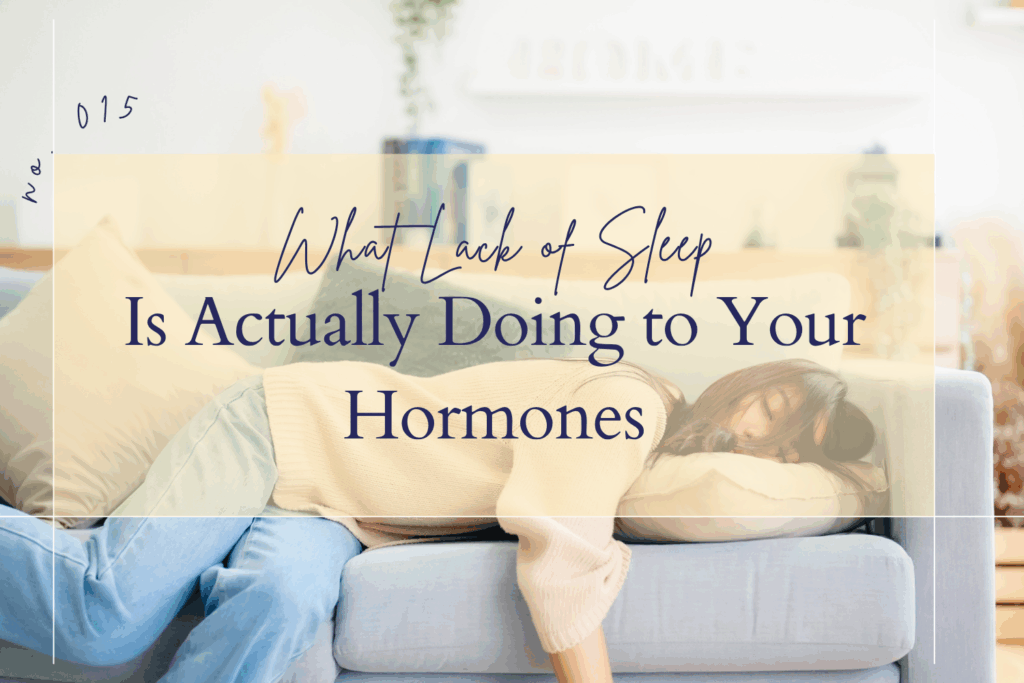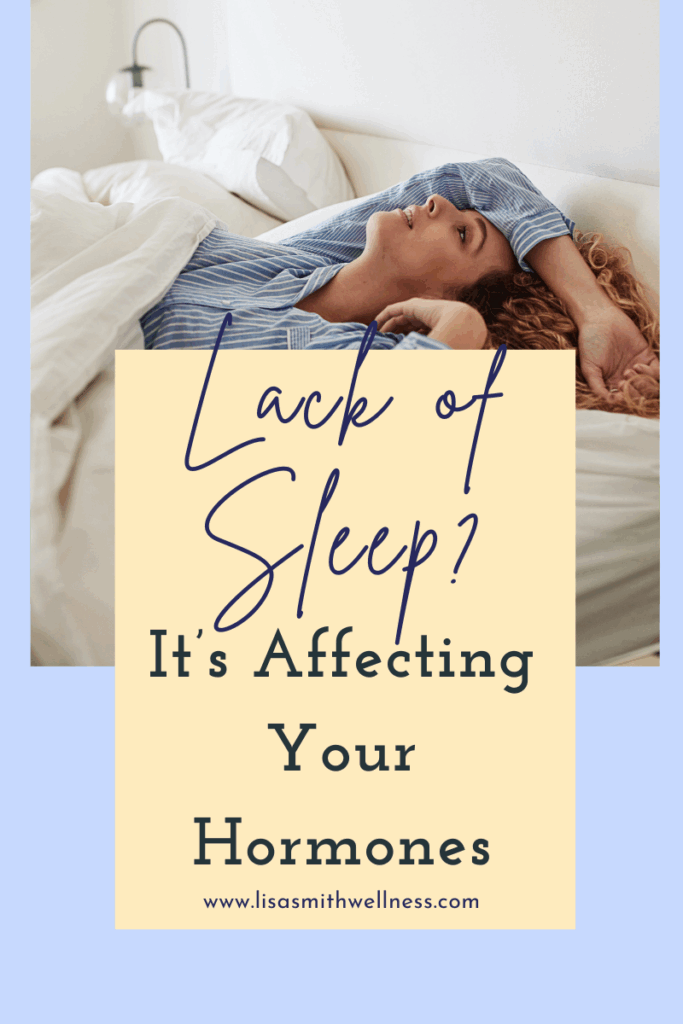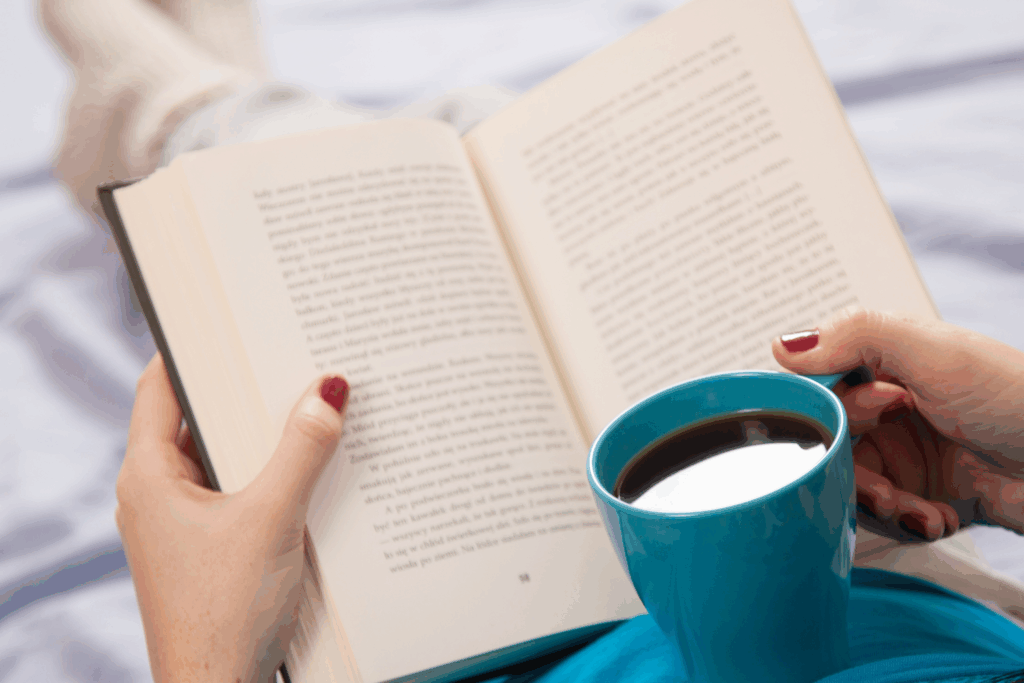(And Why That 10 p.m. Netflix Habit Might Be Backfiring)
Sleep. We all say we need more of it, but then 11 p.m. rolls around and somehow we’re knee-deep in that “one last scroll” that turns into a TikTok rabbit hole, 37 Amazon tabs, and a bowl of something we weren’t even hungry for. (Just me?)
Here’s the thing: a good night’s sleep isn’t just about not feeling like a miserable wretch the next day. It’s one of the most underrated, overlooked, and wildly impactful tools in your wellness toolkit—and your hormones are paying close attention.
So if you’re struggling with weight that won’t budge, cravings that feel like obsession, or moods that range from zen to zero chill in 2.4 seconds… let’s talk sleep.
This post contains affiliate links meaning I make a small commission at no extra cost to you. Thank you for supporting the work of Lisa Smith Wellness and the Pretty Well Podcast!

Your Hormones Are Running the Show (and They’re Tired)
Think of your body as an incredibly advanced, intelligent system—basically the latest iPhone, but with more opinions and no off-switch. Now, imagine you keep forgetting to charge it overnight. Eventually, things stop syncing, glitches show up, and it starts autocorrecting “calm” to “crumble.”
That’s what happens when you skimp on sleep.
Here’s the hormonal breakdown:
- Cortisol (a.k.a. The Stress Boss): Cortisol gets elevated when you’re underslept. And while it’s helpful in short bursts (hello, deadlines), chronic cortisol? That’s where we see anxiety, muscle loss, stubborn belly fat, and general “I feel like a human pressure cooker” vibes.
- Insulin: Lack of sleep makes your cells less responsive to insulin, which leads to blood sugar spikes, crashes, and cravings that turn your pantry into a crime scene.
- Leptin & Ghrelin: These are your hunger hormones. One tells you you’re full (leptin), the other screams, “Feed me now!” (ghrelin). Just one bad night of sleep lowers leptin and raises ghrelin. Suddenly, you’re face-first in a croissant wondering what happened.
Sleep and Weight: The Sneaky Connection
Let’s get this out of the way: sleep is not the new diet. But research shows that people who get 7–8 hours of sleep per night tend to weigh less than those who log five hours or less.
And it’s not because they’re more disciplined—it’s because their hormones are behaving.
Short sleep duration is linked to:
- Increased late-night snacking (shoutout to those pantry lights)
- Poor blood sugar control
- Lower metabolism
- Heightened cravings for sugar and carbs (your brain is literally begging for energy)
- Higher cortisol levels
So no, you’re not weak. You’re just tired.
When Sleep Deprivation Becomes a Lifestyle (Oops)
Let’s talk about the slow unraveling. Maybe you used to sleep fine, but life got… life-y. Work, kids, stress, Netflix, the existential dread of unread emails. And now you’re wired at night and groggy all day.
This pattern trains your body to run on stress hormones, leading to things like:
- Cravings you can’t control
- Anxiety that shows up uninvited
- Hormonal imbalances (PCOS, thyroid issues, you name it)
- And that frustrating “I’m doing everything right but still feel awful” feeling
Sound familiar? You’re not alone. But you don’t have to stay stuck here either.
Pin this for Later

Want Better Sleep? Start Here.
You don’t need a 3-hour bedtime routine with whale sounds and ceremonial herbs (unless that’s your thing—no judgment). But a few key shifts can change the game.
1. Create a Wind-Down Routine (That Doesn’t Involve a Screen)

No, watching Instagram Reels doesn’t count as winding down. Blue light from screens delays melatonin production, making it harder to fall and stay asleep.
Instead: Try reading, stretching, journaling, listing what your grateful for, and/or deep breathing. Bonus points for dimming lights an hour before bed.
2. Go to Sleep and Wake Up at the Same Time (Even on Weekends)
Yes, it’s annoying. Yes, it helps. Your circadian rhythm loves consistency. If you treat sleep like a non-negotiable meeting, your body will start showing up ready.
3. Cut the Caffeine After 2 p.m.
I love coffee too. But that 4 p.m. “just one more” might be sabotaging your sleep. Switch to herbal tea or sparkling water and save the espresso for the morning.
4. Watch the Nightcap
Alcohol may help you fall asleep faster, but it disrupts quality sleep—especially the deep, restorative kind your hormones thrive on.
5. Eat Lighter at Night
A giant, greasy meal at 9 p.m. won’t win you any points with your digestive system. Try a light dinner a few hours before bed—and if you need a snack, make it something small with protein and fat (like a handful of almonds).
Optimize Your Environment
You don’t need a $5,000 mattress (though more power to you, if that’s what you want). But your sleep environment matters.
- Keep your room cool and dark (blackout blinds are a game-changer)
- Limit noise (or use white noise if your partner snores like a chainsaw)
- Swap out synthetic scents for essential oils like therapeutic-grade lavender or vetiver
Bonus tip:
Turn your phone on airplane mode or charge it in another room to reduce EMF exposure and temptation. Worried about missing your alarm? Try this analog version.
Gut Health, Blood Sugar & Sleep: The Trifecta
Did you know your microbiome produces neurotransmitters like serotonin and GABA? And guess what—those are major players in sleep quality.
Here’s how to support your gut for better zzz’s:
- Eat fiber-rich foods (veggies, chia, flax)
- Include fermented foods (sauerkraut, kimchi, yogurt if tolerated)
- Avoid high-sugar foods late at night (they spike blood sugar and then crash it, often waking you up at 2 a.m.)
Supplements That Might Help (Ask Your Provider First)
- Magnesium Glycinate: Excellent for calming the nervous system and supporting deep sleep.
- L-Theanine: Helps the brain shift into a relaxed alpha state.
- Adaptogens: Ashwagandha and holy basil help reduce cortisol and ease you out of that wired-and-tired mode.
TL;DR (Or “If You Skipped Ahead Like a Rebel”)
Sleep isn’t just a nice-to-have—it’s the foundation of your hormonal balance, energy, mood, and metabolism. If you’ve been feeling stuck, inflamed, tired, puffy, or on the edge of a cookie-fueled breakdown… it might be time to look at your sleep strategy.
Small shifts will make a big difference.
And remember: wellness isn’t about doing everything perfectly. It’s about supporting your body in the ways that actually work.
So dim those lights, close those tabs, and give your hormones the rest they deserve. Your future self (and your morning face) will thank you.
+ view comments . . .